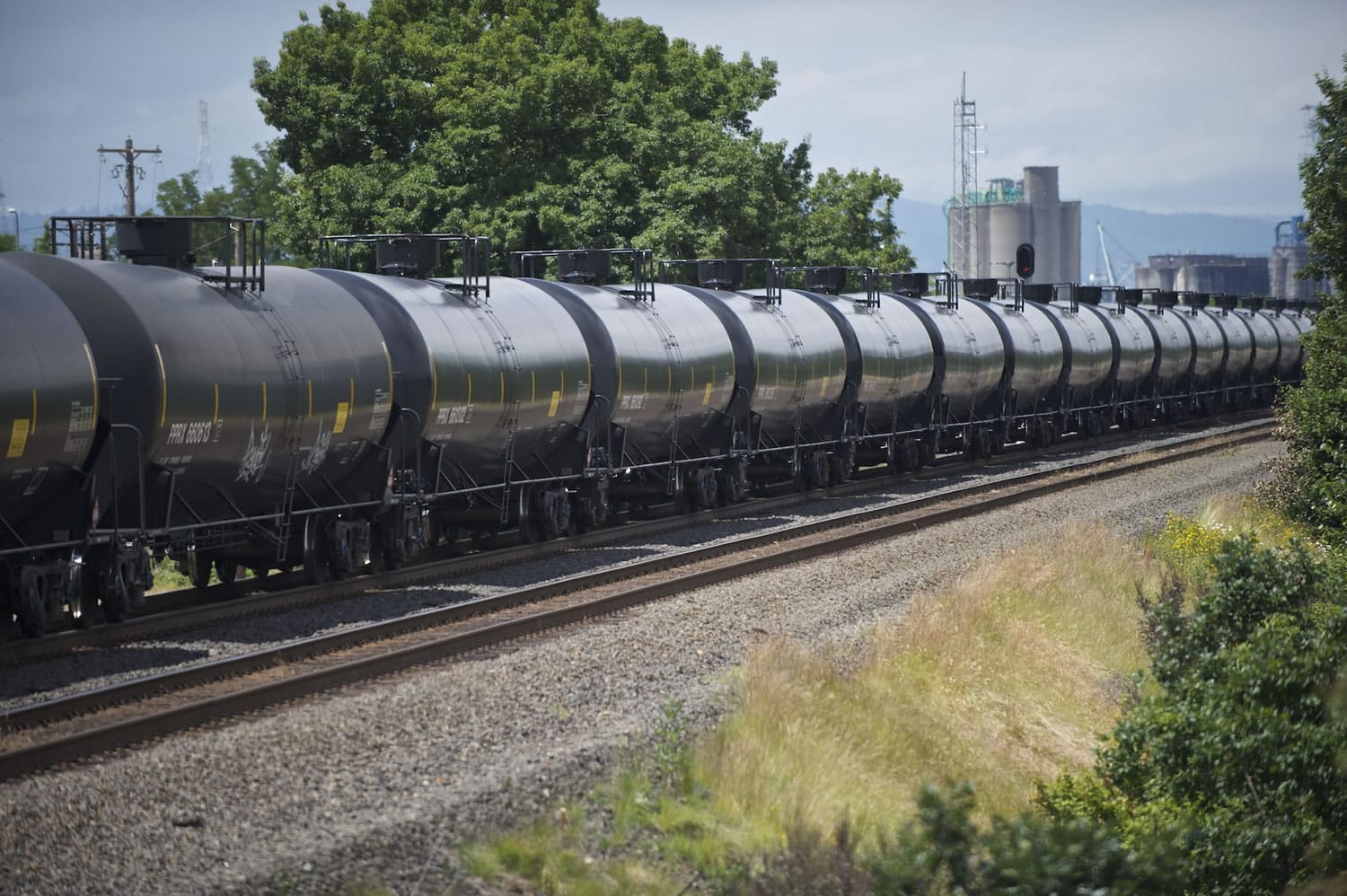The state attorney tasked with defending the environment took aim at the Port of Vancouver’s proposed rail-to-marine oil terminal in comments submitted Friday by asserting that the risks of train derailments are being underplayed.
The counsel for the environment, a member of the Attorney General’s Office who represents the public’s interest in the environment while the state reviews proposed energy facilities, said the draft Environmental Impact Statement for the proposed Vancouver Energy oil terminal understates the risk of oil train derailments and fails to consider the ability of first responders to deal with an accident.
“The (environmental review) underestimates and under-reports the risk of a crude oil-bearing train derailing along the route to or from the Vancouver facility,” wrote Matthew Kernut, counsel for the environment. He added the environmental review “does not address with enough specificity what training and equipment is necessary for first responders throughout Washington to adequately respond to an oil spill or fire as a result of train or vessel accidents.”
The fact that a state lawyer is taking issue with a state environmental review is one of the many complexities in the drawn-out analysis conducted by the state’s Energy Facility Site Evaluation Council. The governor will ultimately get to decide the fate of the project, although his decision can be appealed to the state Supreme Court. The governor can’t comment himself on the project while the review is ongoing, and the Attorney General’s Office likewise said it was not taking sides on the issue.
Kernut’s statement came right at the deadline for public comments on the environmental review, which closed Friday after 60 days. His analysis supported concerns raised by hundreds of oil train opponents since the project was proposed in 2013.
Kemut also urged the evaluation council to address environmental issues raised by the public and other parties during the public review period.
The terminal at the Port of Vancouver would receive up to 360,000 barrels of oil per day by rail and send it on cargo ships to West Coast refineries. An average of four 120-car oil trains would serve the terminal every day.
Vancouver Energy — the joint venture between Tesoro Corp. and Savage Cos. that would operate the terminal — said in a statement Friday it will work to address issues Kernut brought up about the draft Environmental Impact Statement. The company went on to say the environmental review makes the case for, not against, the terminal.
“We generally concur with an important general conclusion of the (review) that the facility under normal operations is designed and can be mitigated to have no probable significant adverse impacts,” wrote Tina Barbee, a spokeswoman for Vancouver Energy.
The Port of Vancouver also released its comments at the 11th hour on Friday, a 100-page document prepared with the help of consultants.
The port questioned the impact statement’s analysis of some safety issues, saying some conclusions were based on inadequate data. The port said the report leads to “misleading information for decision makers (and) insufficient information to support the development of appropriate and reasonable mitigation measures.”




